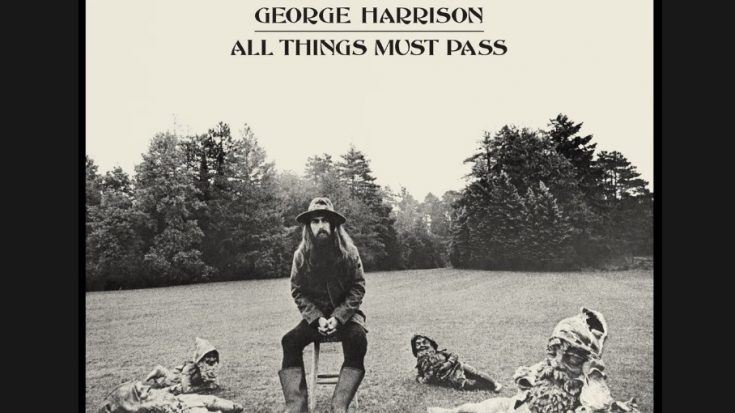George Harrison | 5 Songs To Summarize The Album “All Things Must Pass”

All Things Must Pass album cover - George Harrison / Youtube
The Quiet Beatle definitely didn’t live up to his moniker when he released his 1970 solo album, All Things Must Pass. The astounding amount of acclaim that the album brought was George Harrison’s rightful acknowledgment, which he didn’t receive when he was in the Fab Four. The triple album release was a treasure trove of material written by Harrison that didn’t see the light of day in the Beatles’ catalogs, which showcased the musician’s wide swath of influences perfectly executed in the pursuit of his creative endeavor.
“My Sweet Lord”
The controversial track that met a copyright complaint versus a sixties pop song, “My Sweet Lord” is an uplifting track that features Harrison’s spiritual inclination and influences from the East. Its acoustic arrangement and chanting make it a light track to listen to, while the whistled hook keeps ties everything up.
“What Is Life”
This rich track is one of Harrison’s heaviest rock attempts in the album, driven by a major riff and indulgent melodies. Even the horns are effectively deployed in the track, making it such a hit amongst listeners upon release.
“Run Of The Mill”
George Harrison blended his frustrated commentary regarding the rather ridiculous situations the Beatles found themselves in terms of business practices with a curiously bright guitar progression. His mastery of contrasting elements makes the song quite the listen.
“All Things Must Pass”
First recorded by the Beatles but released by Billy Preston, “All Things Must Pass” was inspired by The Band’s songwriting as well as the Timothy Leary poem “All Things Pass”. Its rich orchestration works well with the lyrical sense of the track really well.
“Hear Me Lord”
Another spiritual plead by Harrison, “Hear Me Lord” is a straightforward prayer asking for guidance in his journey for self-improvement. Its dynamic piano progression and pronounced chorus section are main points that drive the song’s run.











